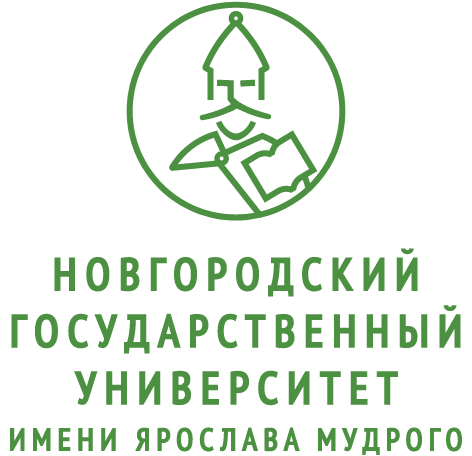От главного редактора
Аннотация
Дорогие коллеги, наши авторы и читатели!
Тема этого номера журнала классическая для российской лингвистики – Художественный текст. Поэзия. Она перекликается с темой последнего номера 2022 года – Художественный текст. Проза, подчеркивая их общее – художественность текста, и специфичное – его прозаичность / поэтичность.
На эту тему откликнулись авторы из Москвы, Петрозаводска, Череповца и, конечно же, Великого Новгорода. При этом нам удается сохранить традицию объединять в одном номере журнала университетских и академических авторов. Академическую ноту на этот раз держат Ольга Игоревна Северская и Анна Сергеевна Кулева – сотрудники Института русского языка имени В.В. Виноградова РАН. Университеты Северо-Запада – Новгородский, Петрозаводский, Череповецкий – представляют Владимир Иванович Заика и Галина Николаевна Гиржева, Наталья Викторовна Патроева, Эльвира Мулкадаровна Аскерова и Алина Альбертовна Дивеева. Приятно отметить, что в университетской части наших авторов оказалась Ольга Григорьевна Ревзина из Московского университета имени М.В. Ломоносова, один из авторитетных авторов в области лингвистической поэтики.
Статьи номера объединились в три рубрики.
Первая рубрика «Теория поэтического текста» включает статьи, связанные с категориями поэтического текста – когнитивность и связность. Первая из них не так давно стала предметом интереса лингвистов, изучающих художественный текст. В статье Ольги Григорьевны Ревзиной «Когнитивное пространство художественного текста» эта проблема обсуждается в самом общем виде, при этом поэтический текст сопоставляется с прозаическим. А в статье Ольги Игоревны Северской показано, как в поэтическом тексте рождается выводное знание «силами» паронимической аттракции, в изучении которой Ольге Игоревне нет равных. Этот новый – когнитивный – аспект паронимической аттракции открывает новые возможности ее изучения как стилистического приема, который, кстати, работает не только в поэтических, но и в медиатекстах, что говорит о его значимости и привлекательности для исследователей. Категория связности текста – одна из первых, которые стали изучать на ранних этапах развития лингвистики текста – в поэтическом тексте обнаруживает специфические средства, которые обсуждают в своей статье Владимир Иванович Заика и Галина Николаевна Гиржева, анализируя один текста В. Набокова и обращая внимание на противоположное действие повтора и переноса. Хотя связность кажется чисто техническим параметром стихотворного текста, авторы показывают, что каждый случай их использования имеет семантический эффект, его следует прочитывать в контексте обсуждаемого стихотворения, творчества его автора и, возможно, эпохи.
Так эта статья начинает фактически вторую рубрику «Семантика поэтического текста». Интересно, что в составляющих ее публикациях обсуждается разная семантика – субъективная в статье Натальи Викторовны Патроевой и объективная, точнее относящаяся к миру природы, в исследовании Анны Сергеевны Кулевой. Ценность предлагаемых в статьях наблюдений вижу в том, что в них не просто констатируется наличие в стихотворных текстах тех или иных смыслов, их наличие и характер объясняется рядом факторов, важных для понимания творчества поэта или русской поэзии определенной эпохи.
В нашей традиционной рубрике «Молодые голоса» статья Алины Дивеевой и Эльвиры Аскеровой – самых молодых авторов номера, их возраст позволяет называть их без отчеств. «Молод» и предмет их изучения – тексты русского рэпа. Отмечу, что Алина Дивеева уже не первый раз выступает автором нашего журнала, публикуемая статья говорит о том, что изучением текстов русского рэпа она «заражает» и своих студентов.
Если говорить о типах исследования поэтического текста, то в статьях номера видим разные – анализ одного стихотворного текста, текстов одного автора в его эволюции и одной эпохи, при этом список изучаемых авторов интересен – от Баратынского до русского рэпа. Все эти исследования опираются непосредственно на наблюдения над текстами, а наряду с этим видим работу, основанную на анализе лексикографического источника – «Словаря языка русской поэзии XX века», что открывает новые перспективы в изучении русской поэзии.
Итак, этот номер журнала представляет ряд опытов исследования поэтического текста. Благодарю сердечно авторов номера и рецензентов – докторов филологических наук Татьяну Геннадьевну Никитину из Псковского университета, и новгородцев – Владимира Ивановича Заику и Викторию Генриховну Дидковскую.
До новых встреч на электронных страницах нашего журнала!
Т. В. Шмелева
Скачивания
Загрузки
Опубликован
Как цитировать
Выпуск
Раздел
Лицензия
Copyright (c) 2023 Verba

Это произведение доступно по лицензии Creative Commons «Attribution-NonCommercial» («Атрибуция — Некоммерческое использование») 4.0 Всемирная.








